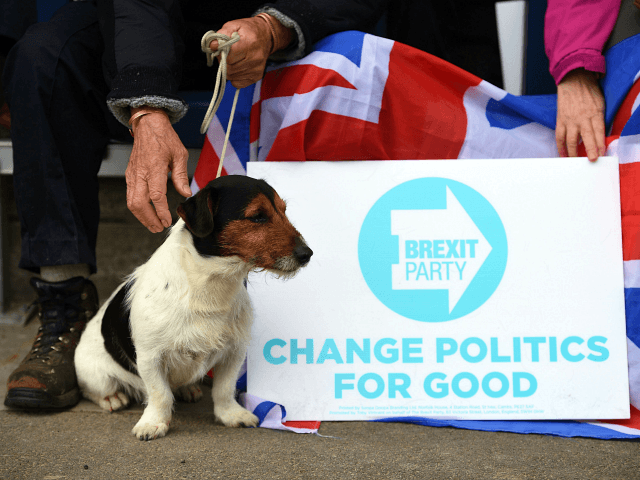The Brexit Party could gain 252 seats in the House of Commons if remain-voting Rory Stewart becomes prime minister, while Boris Johnson is the only Conservative Party candidate capable of winning in a General Election with a majority, according to analysis of polling data.
A ComRes survey of 2,000 voters commissioned by The Telegraph revealed that 27 per cent of respondents believe that former foreign secretary Boris Johnson has what it takes to be the next prime minister, putting him in the lead — far ahead of his next rival current foreign secretary Jeremy Hunt, who voted Remain but now backs a limited Brexit, at 14 per cent.
In a separate question, where voters were asked how they would vote in the next General Election if each of six candidates — Johnson, Hunt, Dominic Raab, Sajid Javid, Rory Stewart, and Michael Gove — were to become Conservative Party leader, Leave campaigner Mr Johnson again came out on top with 37 per cent, followed by former Brexit secretary Mr Raab and Mr Hunt jointly on 25 per cent.
Electoral Calculus analysed the ComRes data to predict voting intention dependent on who of the six aforementioned candidates was Conservative Party leader and prime minister, which revealed that Mr Johnson would be the only Tory Party candidate to not only deliver a majority Tory government at the next General Election — slated for 2022 — but do so with a 140-seat margin.
The next closest candidate would be fellow Brexit campaigner Raab, with 269 seats — leaving the Tory Party 57 seats short of a majority.
The Brexit Party’s support varied widely, however, depending on the Tory candidate, with a complete wipe-out of the party’s projected seat numbers under a Johnson prime ministership.
But the Nigel Farage-led party would see its highest predicted seat share with an astounding 252 seats if Mr Stewart were prime minister — the highest out of all the political parties — pointing to voters abandoning the Conservative Party and embracing the Brexit Party if the next Tory leader fails to be prepared to deliver on the 2016 referendum.
Mr Stewart, who voted for Theresa May’s EU-approved soft-Brexit treaty three times, launched his leadership campaign on Tuesday and said that he would stop a clean, no deal Brexit from getting through parliament.
The Brexit Party is already in a strong position in the polls, with the ComRes poll pointing to Labour in the lead with 27 per cent, while the Brexit Party is just one point behind the Conservatives on 22 per cent.
Martin Baxter of Electoral Calculus told The Telegraph that “other leadership candidates would not have the same effect” in unifying voters nor gaining support from Brexiteers as Johnson, adding: “The poll indicates that Boris Johnson could win back large numbers of voters from the Brexit Party and could win a substantial majority over a divided opposition.”
“Paradoxically, choosing Rory Stewart could push even more disaffected Conservatives to vote for the Brexit Party and might propel Nigel Farage toward Number 10,” Mr Baxter added.
Mr Johnson launched his leadership campaign on Wednesday morning, saying that a Brexit “delay means defeat, delay means Corbyn” and that the delay would see the natural support of the Conservative Party shift to “insurgent parties” like the Brexit Party.
Brexit Party leader Nigel Farage warned on Tuesday night that to delay Brexit beyond October 31st would leave the Tory Party “in very real trouble”, adding: “If they don’t take us out on October 31st, what is the point of the Conservative Party?”

COMMENTS
Please let us know if you're having issues with commenting.